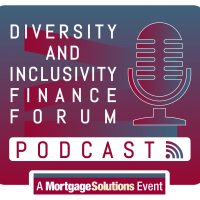
These small verbal or physical actions may appear innocuous to the person delivering them but can be underpinned by a variety of stereotypes, misunderstandings or even deliberate discrimination.
Speaking on the DIFF podcast, Variety Pack CEO and founder Frank Starling explained micro-aggressions often impact people who are underrepresented in the workplace but anyone can express a micro-aggression.
“Micro-aggressions are typical common daily verbal behaviours or environmental actions or slights, which are usually derogatory, which are often automatic and unintentional and often delivered by well-intentioned individuals who are completely unaware they are committing a micro-aggression,” he said.
“In short it’s unintentional discrimination and that is something we need to understand far better.
“What do micro-aggressions mean in the day-to-day and how can we be more cognisant of the language and the general communication we exhibit not just in the workplace but society as a whole?”
Speaking to AE3Media ambassador at large Bharat Sagar, Starling noted there were three types of micro-aggressions:
- Micro-insults – These are often unconscious, behavioural or verbal remarks or comments that infer some sort of rudeness or insensitivity and typically demean a person’s heritage or identity.
- Micro assaults – This happens less often in the workplace and involves explicit characterisations which are either verbally violent or non-verbally violent and meant to intend harm on an individual.
- Micro-invalidations – These are often unconscious and are verbal comments or behaviours that exclude. They nullify the psychological traits or feelings or reality of an individual’s experiences.
Micro-aggressions in the workplace
The pair highlighted several powerful examples of their own experiences or suffered by those close to them in wider society and also raised two particularly relevant to the workplace.
Starling highlighted the assumption of intellectual inferiority that black people and people of colour are thought to be less intelligent.
He noted many organisations claim to have created work environments where it is a meritocracy and where the best people are hired based on their skills. But this can be problematic.
“If our environment is homogenous and we only hired white people that infers the best people must not be those who identify as black and people of colour,”.
“Whereas in reality we know the barriers exist with people of racial groups or those who speak different languages to enter the workplace and flourish in senior leadership.”
And micro-aggressions are not limited to race or ethnicity.
Starling continued: “An example of a gender-based micro-aggression is sexual objectification and that is something which is exceptionally common, especially in industries such as property and finance, when the woman is treated essentially as a sexual object.
“This isn’t just troublesome it’s demeaning, it shouldn’t happen, it’s something that is clearly unacceptable.”
Find allies and challenge ourselves
They key thing was to then identify how to avoid making assumptions based on what is seen or on harmful stereotypes – to focus on the words used and the actions demonstrated.
To successfully do so in workplaces needs a strong culture of allies.
“We’re not trying to shame and demonise people for what is often an unconscious remark or action.
What we’re trying to do is become more enlightened,” Starling said.
“Positively challenging ourselves in that way, explaining that the words or actions used could be considered a micro-aggression and that’s why we’ve got to create a work culture that is full of allies.
“Allies are individuals who recognise their unearned privilege and are more aware of when these things happen around them.”
Starling emphasised that it was important to slow one’s thinking down to consider what stereotypes are held about people and not to be afraid of realising someone may have been making misjudgements.
“Things we’ve just decided are the truth but aren’t rooted in the truth, we’ve got to challenge ourselves because these stereotypes are incredibly harmful,” he said.
“For example, when black women are considered to be angry that impacts not just their career prospects their place in society, it erodes the feeling of belonging.
“And when you expand that, there are many different examples of stereotypes that we hold which we are afraid to challenge ourselves on because we don’t want to be considered bad people.”
Frank Starling is founder and CEO of diversity, equity & inclusion consultants Variety Pack and can be contacted on: frank@varietypack.co.uk















